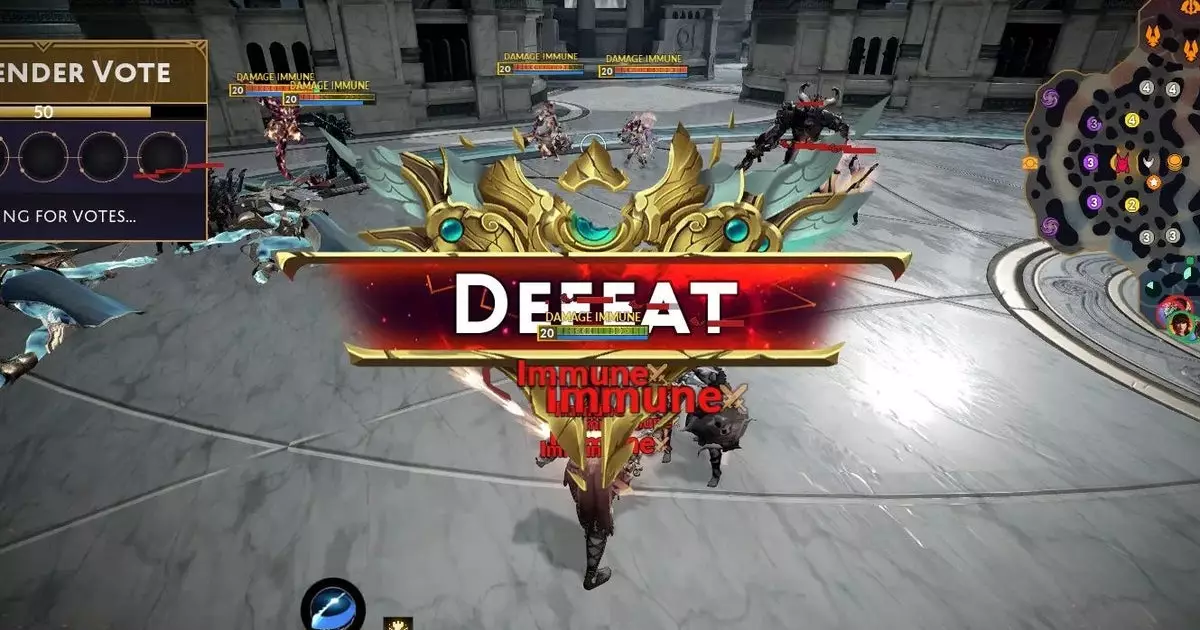The gaming industry, known for its dynamic and ever-changing nature, has seen its fair share of stress and uncertainty over the years. A recent wave of layoffs at Hi-Rez Studios emphasizes the struggles many developers encounter amidst fierce competition, fluctuating market demands, and the challenges of maintaining a viable product line. Following the launch of the free-to-play beta for their latest title, Smite 2, the company has experienced the abrupt dismissal of numerous employees, raising questions about its future trajectory.
Hi-Rez Studios, renowned for its engaging titles like Smite, Paladins, and Rogue Company, has recently downsized its workforce significantly. The layoffs, which potentially impacted upwards of 50-60 people, come only a month after the launch of Smite 2. The company’s decision appears to be a direct response to “challenging market conditions,” indicating that they are undergoing a strategic pivot towards a narrower focus. Dubbed a “reduction in force,” this shift raises concerns about the sustainability of their remaining games, particularly the previously reliable titles that have now been left without dedicated updates.
With the layoffs primarily affecting a broad spectrum of roles—from programmers to marketing personnel—there is a palpable sense of uncertainty surrounding the future of these games that formerly boasted thriving, active development teams. While the games will remain playable, the lack of future content updates could result in dwindling player engagement and community support.
From a development standpoint, the decision to halt updates for Smite, Paladins, and Rogue Company reflects a stark prioritization of resources. The management’s assertion that this leaner operation would enable a “steady flow of new content” for Smite 2 is optimistic but comes with reservations. The reality is that the gradual phasing out of support for long-standing titles could fracture established player bases and undermine brand loyalty. In an industry where continual engagement is vital, such moves can seem counterintuitive.
Potential players might view Hi-Rez’s current strategy with skepticism—given that the recent cuts followed a previous wave of layoffs just four months earlier. This fear of instability may dissuade users from investing in Smite 2, knowing the fate of Hi-Rez’s other beloved properties hangs in the balance. Observers have noted that the competitive gaming landscape is intensifying, with other MOBA titles, such as Valve’s Deadlock, capturing player interest with innovative gameplay and continuous support. This reality introduces pressing concerns for Hi-Rez about maintaining relevance in an increasingly crowded market.
Reactions from the Community and Industry
The gaming community has reacted to the news with a mix of concern and disappointment. With Hi-Rez’s CEO, Stewart Chisam, deleting his social media accounts amid the fallout, it underscores a growing sense of frustration regarding transparency and communication. This brings to light a pervasive issue within the industry: the lack of clarity from companies when it comes to workforce reductions. Fellow studios, like BioWare, have faced similar backlash for failing to openly discuss layoffs, leading many to question the ethics and obligations of management to its employees and player communities.
In the face of these operational challenges, the ongoing plight of workers in the industry is becoming more apparent. Many gaming professionals find themselves at the mercy of corporate decisions that fail to capture the passion and dedication they bring to their crafts. It is a stark reminder that behind the shiny surfaces of beloved titles are people who might be losing their livelihoods in the scramble for market share and sustainability.
Hi-Rez Studios is at a critical juncture. While Smite 2 may be the centerpiece of their strategy moving forward, the consequences of their recent layoffs and the scaling back of support for earlier titles pose substantial risks. The reaction from both employees and players will certainly shape the landscape of the studio’s future endeavors. For now, they must navigate these treacherous waters with caution and transparency, striving to rebuild trust with their community while attempting to regain their footing in a competitive market. The reforms must center around not just survival, but the revival of the vibrant gaming culture that their studio once championed.


Leave a Reply